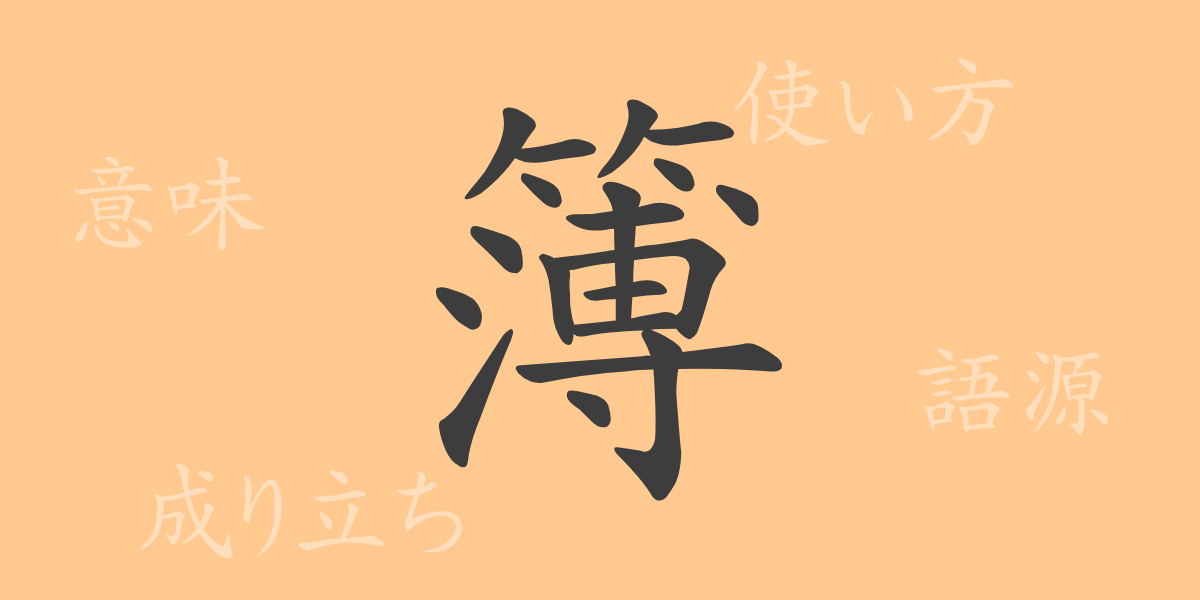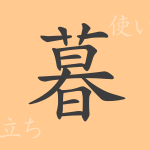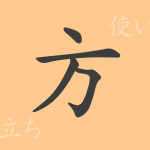In the Japanese language, there are numerous kanji characters that possess deep meanings and beauty. Among them, “簿” (bo) is one of the important kanji frequently used in our daily lives and business scenes. In this article, we delve deep into the world of “簿” (bo), explaining its origin, meaning, usage, and even its readings and compounds in detail. By understanding the history and meaning embedded in each kanji, let’s embark on a journey to rediscover the richness of the Japanese language.
Origin of 簿 (bo)
The kanji “簿” (bo) is a character that originated in ancient China. Its etymology comes from the ancient method of recording characters on thinly split bamboo strips. Records written on bamboo slips later evolved into paper ledgers, and “簿” (bo) came to be used as a kanji meaning records or ledgers. Thus, “簿” (bo) embodies the important role of organizing and preserving information.
Meaning and Usage of 簿 (bo)
The kanji “簿” (bo) is used in terms meaning records or lists, such as “帳簿” (choubo – ledger) and “名簿” (meibo – name list). In the business world, “簿” (bo) is utilized as an essential tool for organizing and storing various data, such as accounting books and customer lists. Additionally, in the fields of law and administration, it is used in public records like “戸籍簿” (kosekibo – family register) and “登記簿” (toukibo – registry), making it an indispensable kanji for maintaining social order.
Readings, Stroke Count, and Radical of 簿 (bo)
It is also important to deepen our understanding of the readings and form of the kanji “簿” (bo).
- Reading: The on’yomi (音読み) is “ボ” (bo), and there is no specific kun’yomi (訓読み).
- Stroke Count: It has a total of 19 strokes.
- Radical: The radical is 竹部 (takekanmuri – bamboo).
Compounds, Idioms, and Proverbs Using 簿 (bo) and Their Meanings
Here are some compounds and idioms that include “簿” (bo).
- 名簿 (meibo) – A list of people’s names.
- 帳簿 (choubo) – A book for recording accounts.
- 戸籍簿 (kosekibo) – An official register for keeping family records.
- 芳名簿 (houmeibo) – A register of visitors or donors.
- 公簿 (koubo) – A public record book.
These compounds serve as means to organize specific information in daily life and business, allowing people to share it.
Summary of 簿 (bo)
The kanji “簿” (bo) has its form and meaning derived from ancient recording methods and is still widely used in modern times. As an essential tool for organizing records and sharing information, it is closely related to our lives. Through this article, we hope you understand the history and culture behind the kanji “簿” (bo) and feel the profoundness of the Japanese language.

























